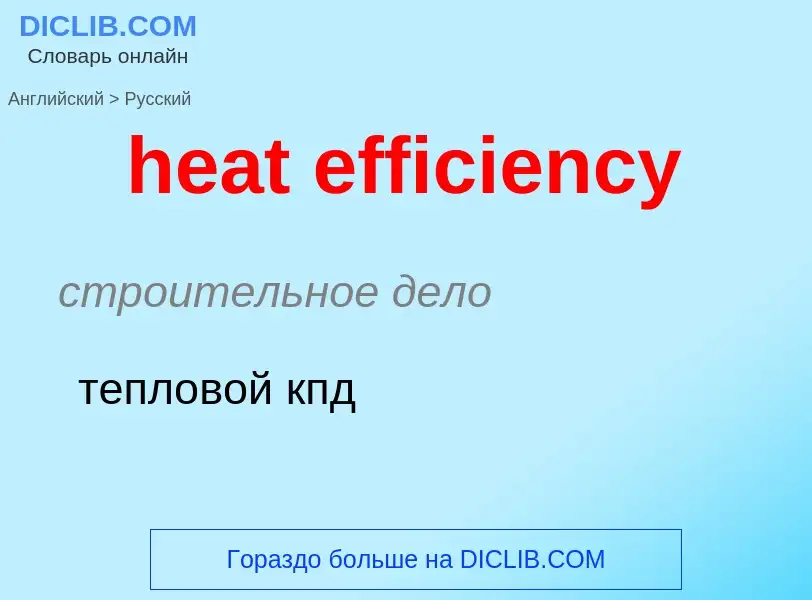Translation and analysis of words by artificial intelligence
On this page you can get a detailed analysis of a word or phrase, produced by the best artificial intelligence technology to date:
- how the word is used
- frequency of use
- it is used more often in oral or written speech
- word translation options
- usage examples (several phrases with translation)
- etymology
heat efficiency - translation to russian
строительное дело
тепловой кпд
Definition
Wikipedia

In thermodynamics and engineering, a heat engine is a system that converts heat to usable energy, particularly mechanical energy, which can then be used to do mechanical work. While originally conceived in the context of mechanical energy, the concept of the heat engine has been applied to various other kinds of energy, particularly electrical, since at least the late 19th century. The heat engine does this by bringing a working substance from a higher state temperature to a lower state temperature. A heat source generates thermal energy that brings the working substance to the higher temperature state. The working substance generates work in the working body of the engine while transferring heat to the colder sink until it reaches a lower temperature state. During this process some of the thermal energy is converted into work by exploiting the properties of the working substance. The working substance can be any system with a non-zero heat capacity, but it usually is a gas or liquid. During this process, some heat is normally lost to the surroundings and is not converted to work. Also, some energy is unusable because of friction and drag.
In general, an engine is any machine that converts energy to mechanical work. Heat engines distinguish themselves from other types of engines by the fact that their efficiency is fundamentally limited by Carnot's theorem. Although this efficiency limitation can be a drawback, an advantage of heat engines is that most forms of energy can be easily converted to heat by processes like exothermic reactions (such as combustion), nuclear fission, absorption of light or energetic particles, friction, dissipation and resistance. Since the heat source that supplies thermal energy to the engine can thus be powered by virtually any kind of energy, heat engines cover a wide range of applications.
Heat engines are often confused with the cycles they attempt to implement. Typically, the term "engine" is used for a physical device and "cycle" for the models.


